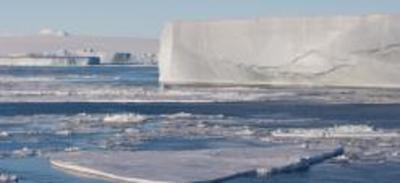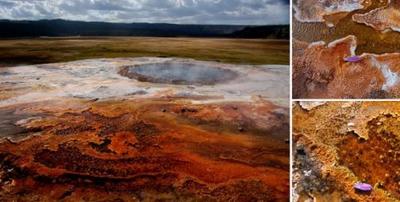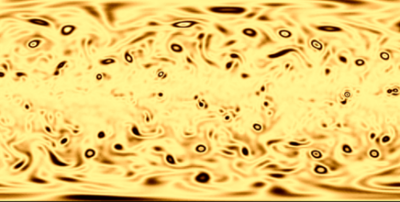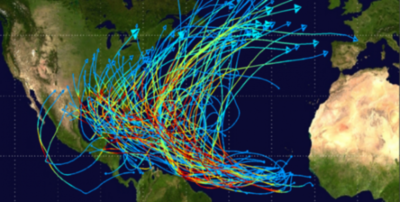Climate Dynamics
Understanding the climates of earth and other planets represents one of the great intellectual challenges of our era, and in the case of Earth, one of great practical significance. Progress in attaining such an understanding requires the application of knowledge and techniques from many scientific disciplines, including the physics of radiative and convective heat transfer, geophysical and computational fluid dynamics, advanced thermodynamics, cloud microphysics, atmospheric chemistry, geochemistry, and biology. The pursuit is not for the faint of heart, but the few willing to take them on find the intellectual challenges deeply rewarding.
 PAOC faculty, students, postdoctoral fellows and research scientists are actively engaged in research on many facets of the climate system. We are confronting fundamental questions, such as: Does the earth’s climate system possess multiple stable equilibria for a given radiative forcing? What determines poleward heat transport in the ocean, and more generally, how is the net poleward heat flux partitioned between the atmosphere and oceans? How do physical, chemical, and biological processes in the atmosphere, oceans, and terrestrial biosphere control the carbon dioxide and methane contents of the atmosphere? Do extreme events in the atmosphere, such as hurricanes, play a role in regulating climate? What processes regulate the distribution of water vapor, the most important greenhouse gas? What determines the magnitude and sign of cloud feedbacks in the climate system? What geophysical processes explain the earth’s response to changing distributions of radiation forced by orbital variations, evident in the great glacial cycles of the last 3 million years? How can we explain very different climates of the distant past, such as that of the Eocene, when temperatures at the North Pole exceeded 15C?
PAOC faculty, students, postdoctoral fellows and research scientists are actively engaged in research on many facets of the climate system. We are confronting fundamental questions, such as: Does the earth’s climate system possess multiple stable equilibria for a given radiative forcing? What determines poleward heat transport in the ocean, and more generally, how is the net poleward heat flux partitioned between the atmosphere and oceans? How do physical, chemical, and biological processes in the atmosphere, oceans, and terrestrial biosphere control the carbon dioxide and methane contents of the atmosphere? Do extreme events in the atmosphere, such as hurricanes, play a role in regulating climate? What processes regulate the distribution of water vapor, the most important greenhouse gas? What determines the magnitude and sign of cloud feedbacks in the climate system? What geophysical processes explain the earth’s response to changing distributions of radiation forced by orbital variations, evident in the great glacial cycles of the last 3 million years? How can we explain very different climates of the distant past, such as that of the Eocene, when temperatures at the North Pole exceeded 15C?
These are examples of important and exciting intellectual challenges that require exceptionally broad backgrounds in the sciences. PAOC’s home in the Department of Earth, Atmospheric, and Planetary sciences at MIT offers students a unique opportunity to learn from top scientists in atmospheres, oceans, geochemistry, and geobiology. Our connections with programs at Harvard University and our participation in the Joint Program with the Woods Hole Oceanographic Institution further broaden and deepen educational and research opportunities, positioning us to produce the world’s top climate scientists.



